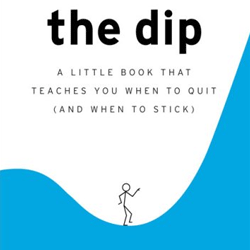In the month of October, we put 5 deals under contract and will be out of pocket less than $3000!
In fact, we used someone else’s money, so it’s not cost us a penny… just some time!
What exactly did we do?
1. Find the motivated sellers!
We started by sending out a direct mail campaign to about 350 property owners. What is different about this campaign versus our standard “absentee owner marketing” campaign is the fact that we found owners of VACANT land that had owned the property for more than 10 years!
2. Screen the leads…
Out of 350 letters that went out, we had about 70 calls! Yes… that’s right! Twenty percent of the people responded to our letter. Typically with other real estate direct mail, I’ll get between 8 – 15%, so this market is definitely hot!
Oh! And by the way… we actually send all of these leads to our virtual assistant who called them all back, filled out lead sheets, and gathered all the preliminary information. In some cases, she even pre-negotiated the price down!
3. Evaluate the deals…
Obviously with 70 deals (give or take), the due diligence took a little time. The great part, however, is that since you’re mailing in clusters, you can duplicate your homework across lots of properties! We hand picked the very best of the best and decided to make offers.
4. Make offers…
Next, we had to put our offers together. Some of the sellers, we called over the phone. Others, we simply dropped offers in the mail and hoped for the best! We gave them 10 days to get the contracts back to us and had 6 contracts back in that time period.
5. Additional due diligence…
The executed contract is just the first piece of the puzzle. Now, I would never suggest you go into a contract on a deal you don’t have every intention of closing on, but you aren’t going to do all the due diligence required on every deal until you have a contract in hand. For example, when we buy real property, we don’t pay for inspections and appraisals until after we have a signed contract. The same holds true for land. There are going to be additional calls to make and some more homework to do, but now it only takes you a short while since it’s the deals you’re actually going to close on.
NOTE: You may have noticed I said that we got SIX contracts back, but that we were closing on 5 deals. Why?
Because during the due diligence, we found some issues that were deal breakers for us. We simply decided to get out of the contract, which was completely within the terms of the contract, prior to closing. THAT’S what this secondary period is for!
6. Closing…
The last step in the acquisition process is closing on the deals! Since we wanted to use someone else for the financing (remember… the more you leverage OPM, the better your ROI is). So, we actually assigned the contracts to the LLC we set up with the partner on these deals. He put up all the money and we did the work!
7. BONUS: Pre-sold one…
We actually run regular ads for our properties on Craigslist and happened to be running a group of ads for seller financing. A potential buyer contacted us and the more we got to talking, the more I realized that one of these new properties was much more appropriate for their needs and pre-sold it while we waited for the deed to be signed off on! They are currently deciding between 2 of these BRAND NEW DEALS!
The Numbers
One of the lots, we picked up for a flat $500. It’s one block away from the lake and would have lake view with a two-story home on it. They are looking at that one for $4900 with seller financing option which will be $900 down and the balance seller financed at 8% for 12 months.
Total profit potential = $4575.44 (5075.44 – $500 purchase price = $4575.44)
Total potential ROI = 915%! (Our ROI is infinite because we had nothing invested)
If they choose the other lot, the purchase price is $8900. We have a total of $2100 into it will all closing costs and additional expenses incurred. If they choose this one, they’re going to pay $8900 with seller financing. This will be $1000 ad the balance seller financed at 8% for 12 months.
Total profit potential = $7190.36 ($9290.36 – $2100 purchase costs = $7190.36)
Total potential ROI = 342%! (Our ROI is infinite because we had nothing invested)
The best part about these types of deals is that there’s NO SHORTAGE of deals AND there are loads of people that are interested in putting up a few thousand dollars to “test” something when you can show returns like that on their money!
Heck, even when you split the profits… that’s still over 450% ROI on the first scenario and over 170% ROI on the second! Show those numbers to investors and they’ll be lining up to do deals with you.
PLUS… if you want to get started yourself… you can use your own money or even a credit card advance for less than the cost of most home study courses these days!
For more information on how we’re picking up these land deals for next to nothing, check out our Simple Land Investing…












